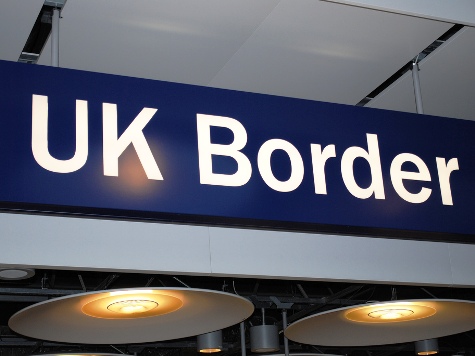The Conservative pledge to slow immigration appears to be on the rocks, and those who warned of a flood of economic migrants after work restrictions for new members was lifted at the start of the year have been vindicated after it emerged that Romanians and Bulgarians were significantly outpacing other groups in getting British jobs.
The new figures from the Office of National Statistics correct earlier figures which were used to browbeat Eurosceptics over what was then thought to be an actual drop in the number of Romanian and Bulgarians (‘A2’ European Union member states) working in the UK. In reality an extra 42,000 have found employment in the UK in a record-breaking surge, which well outstrips job growth in the UK as a whole, reports the Daily Mail.
Before restrictions on new EU member citizens from Romania and Bulgaria working in Britain were lifted on January 1 2014, British immigration think tank Migration Watch warned relaxing the rules could mean an additional 50,000 a year could arrive in the UK every year. Sir Andrew Green, chairman of Migration Watch UK, said: “This forecast appears to be on track. Migration from the EU in general remains high and so is likely to remain a key political issue.”
The total growth of A2 citizens in the UK for the year to September stands at a remarkable 34.9 percent, significantly higher than the 2.3 percent growth in employment for all people in the United Kingdom. The picture was significantly less rosy for actual British citizens, who only saw a 1.5 percent growth in employment over the same period.
In all, there were an additional 312,000 people born abroad who found jobs in the UK this year so far, making the government’s pledge to hit a 100,000 annual immigration target by next year seem increasingly unlikely.
These employment figures don’t count unemployed migrants, the sort of which Germany was seeking to turn away at the European Court of Justice this week, when they won their case to restrict access to benefits for what they call “poverty migrants”. Although a victory for the German government, the ruling won’t apply to Britain, as our benefits system largely works on a universal, rather than contributory system.
Prime Minister David Cameron has spoken recently about his desire to force changes in the freedom of movement in the European Union, and to introduce immigration quotas from the continent to the United Kingdom.
Any hoped-for negotiation over a new system in the Union got off to a stony start earlier this month when the German Chancellor Angela Merkel, arguably the most influential person in Europe called absolutely freedom of movement “non-negotiable”.

COMMENTS
Please let us know if you're having issues with commenting.